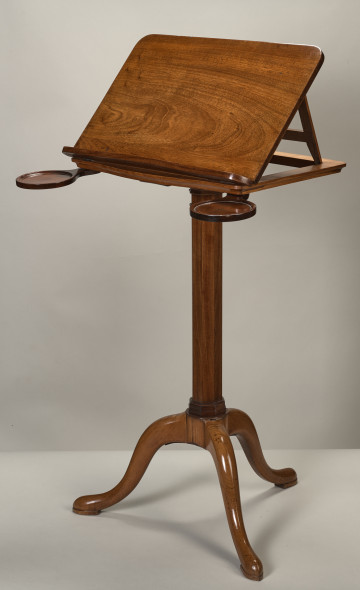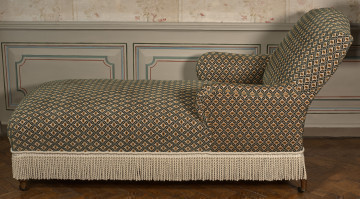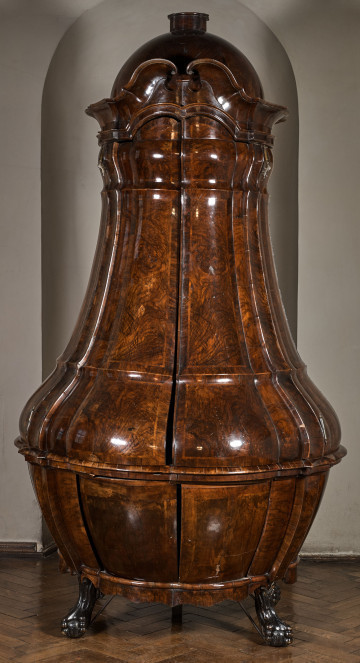
Wooden desktop
18th-19th century
Castle Museum in Łańcut
Part of the collection: Meble i wyposażenie wnętrz
The presented piece of furniture is part of a set of chairs from the old furnishings of the Łańcut castle interiors (S.7882MŁ; S.7883MŁ; S.7884MŁ; S.7888MŁ). The chair was probably purchased towards the end of the 19th century, during the time of Elżbieta and Roman Potocki, when the renovated and modernised interiors were being furnished. The simplicity of the chair's shape, the coherent design and aesthetics of the carefully selected tree rings of the bright cherry veneer indicate parallels with Biedermeier-style furniture. In the 1890s, this term began to be used for the fashion emerging in interior design in Austria, Germany, and the areas of German cultural influence in the time between the 1815 Congress of Vienna and the events of the 1848 Revolutions. The term 'Biedermeier' was borrowed from the satirical character of an honest and reliable but narrow-minded townsman. The Biedermeier style emerged as a response to the grandeur of Classicism and French Empire styles. Biedermeier was characterised by functionality and simplicity. Abandoning the over-interpretation of the art of antiquity, the excess of decorations or gilded bronze castings, furniture-making chose solid structure. Native wood species began to be used on a large scale, e.g. walnut, maple, birch, ash, and fruit trees. Veneers showcased the tree rings - the natural qualities of the wood were regarded as a decorative feature. Furniture designed for residential interiors were not ostentatious; their function was to provide comfort in everyday life. The Biedermeier style, discouraged in the 2nd half of the 19th century, was welcomed at the threshold of modernism and became the inspiration for 20th-century furniture-making. Teresa Bagińska-Żurawska https://orcid.org/0000-0002-9243-3967
Author / creator
Dimensions
height: 88 cm, width: 47 cm
Object type
Furniture and interior fittings
Technique
carpentry
Material
birch wood, veneer
Creation time / dating
Creation / finding place
Owner
Castle Museum in Łańcut
Identification number
Location / status

18th-19th century
Castle Museum in Łańcut

20th century
Castle Museum in Łańcut

18th century
Castle Museum in Łańcut
DISCOVER this TOPIC
Museum of King Jan III's Palace at Wilanów
DISCOVER this PATH
Educational path